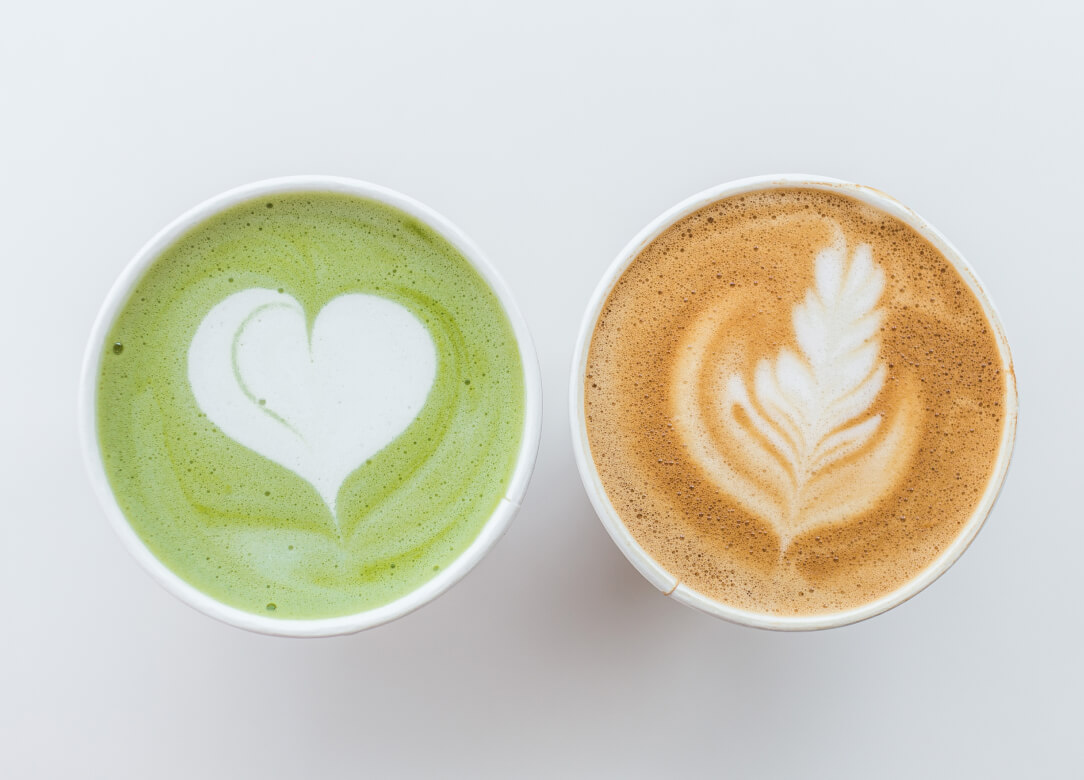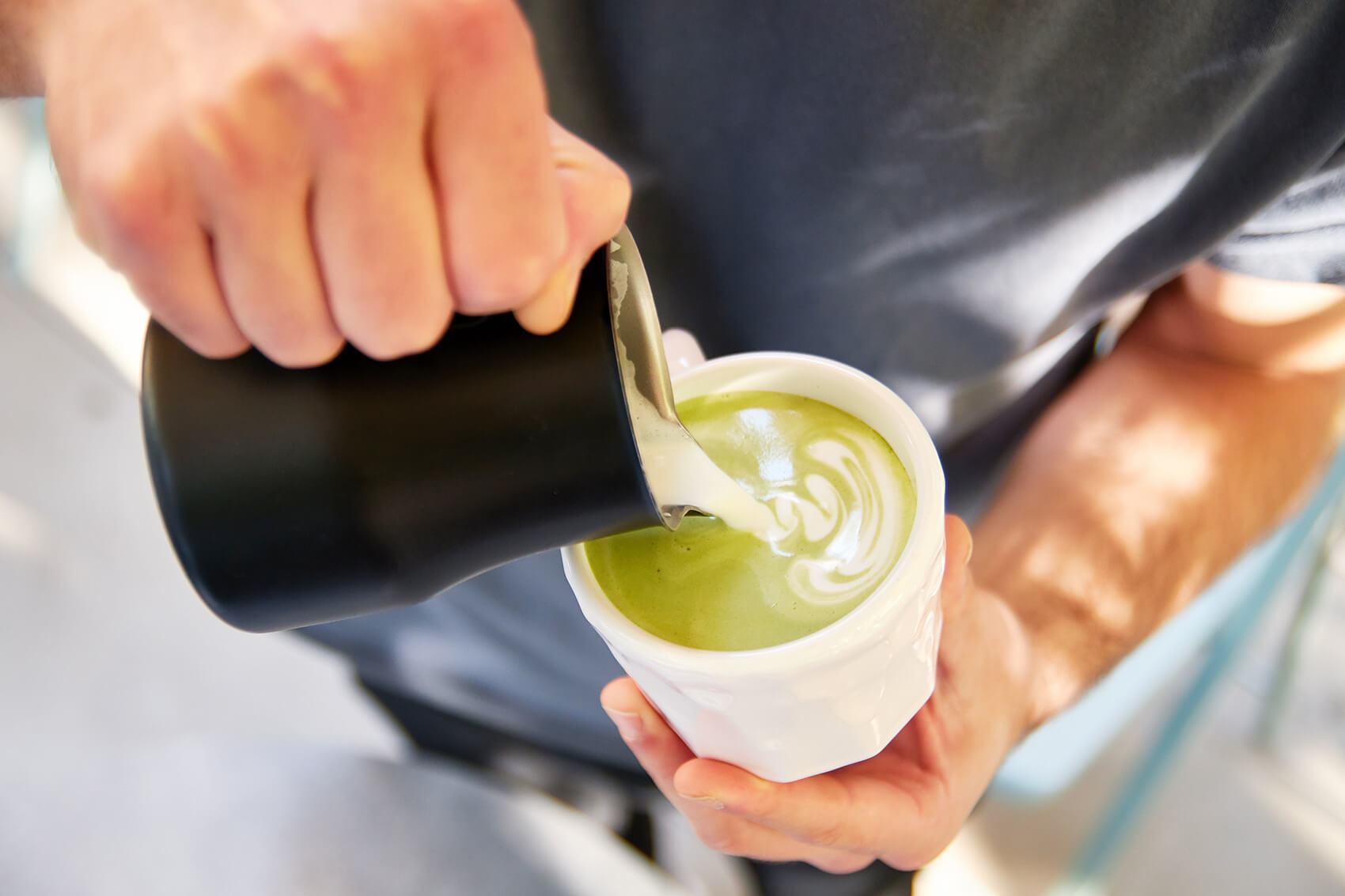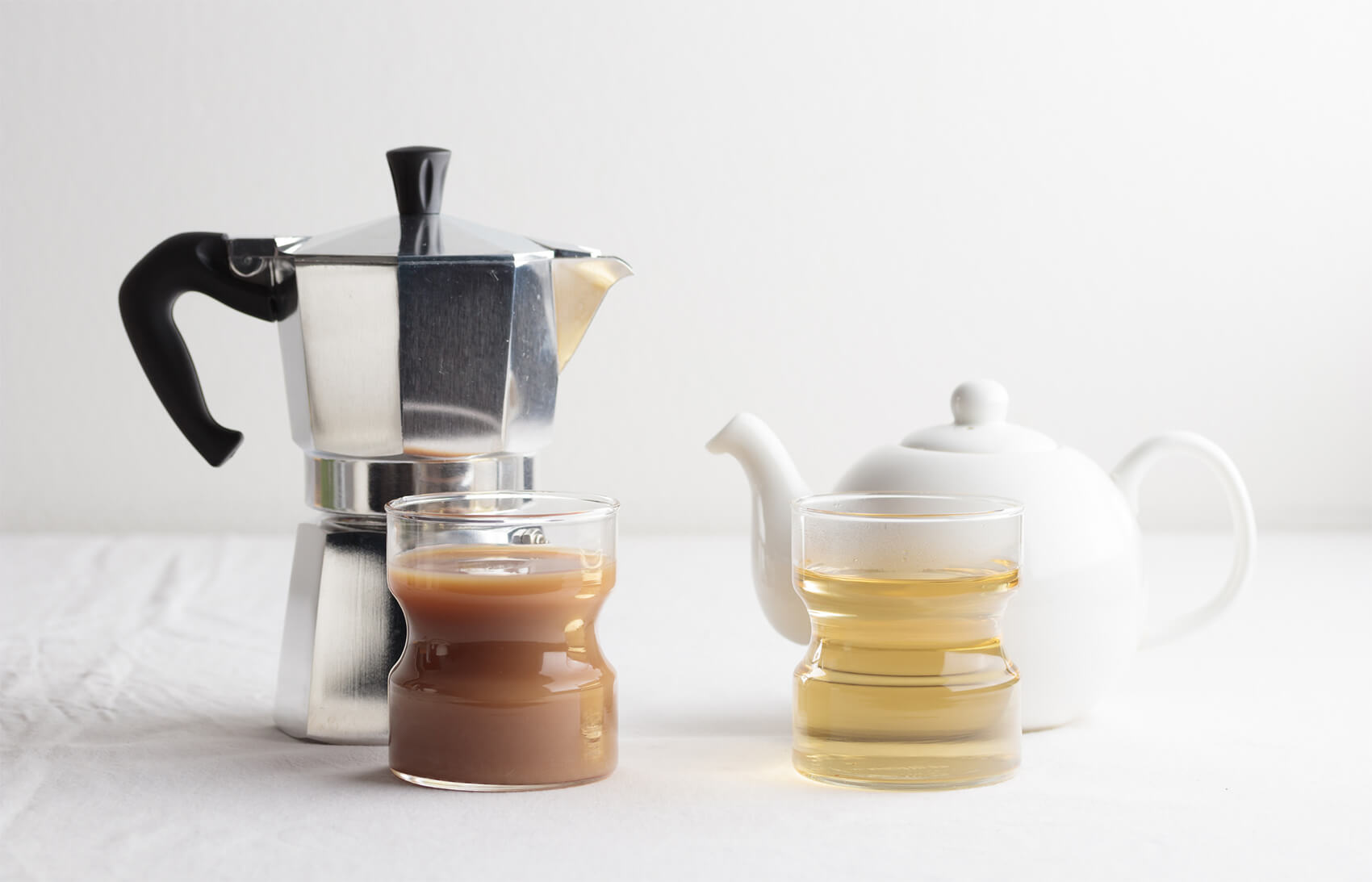

In today's fast-paced world, where caffeine reigns supreme, the age-old debate of tea versus coffee continues to thrive. As more and more people seek a beverage that energises them and offers health benefits, Japanese green teas emerge as a strong contender.

In this article, we dive into the comparison between tea and coffee, focusing on the health advantages of Japanese green teas.
The perennial tug-of-war between tea and coffee has captivated beverage enthusiasts for generations. With its bold flavour and immediate kick, coffee has long been many's go-to choice. Recently, however, tea has been making its way to the top.

Japanese green teas, like matcha and sencha, can be an excellent coffee replacement. The choice between these two beloved beverages extends beyond taste preferences in the caffeine-fueled world. It's a decision that can significantly impact our health and well-being.
The focus shifts to the unique qualities of Japanese green teas, offering a refreshing alternative for health-conscious individuals. Japanese green teas stand out in comparison, providing not just a beverage but a holistic approach to health and vitality.
For many, the day doesn't truly commence until that first sip of coffee touches their taste buds. The allure of coffee lies in its robust flavour and immediate energy boost. However, this often comes at a cost: jitters, crashes, and heightened anxiety.
Japanese green teas stand out in the quest for a more balanced energy source. A prime example is matcha, a finely ground green tea powder. With approximately 30-40 mg of caffeine per 8-ounce serving, matcha offers a gentler yet sustained energy release compared to the 95 mg in the average coffee cup. This makes Japanese green teas appealing for those seeking a milder pick-me-up that doesn't sacrifice effectiveness.

Matcha is a great energy booster, giving a longer-lasting energy boost than a cup of coffee. It also has plenty of other health benefits. We covered them in our article here.
While the immediate energy boost of coffee is undeniable, it often comes at the expense of side effects such as increased heart rate, anxiety, and digestive issues. Japanese green teas are gentle on the stomach and nerves. They offer a balanced and sustainable energy source. Unlike coffee, they do not have any negative effects.
Furthermore, L-theanine, an amino acid in green teas, promotes relaxation and mental clarity. It counteracts the potential jitteriness induced by caffeine. This unique combination provides a smooth and enjoyable experience transcending the mere act of consuming a beverage.
Do you want to learn more about matcha? You’ll find all the answers you are looking for in our Matcha Q&A.
Beyond their delightful flavours, the health benefits of Japanese green teas lie in their rich antioxidant content. Matcha and sencha, in particular, boast high levels of catechins, a type of antioxidant renowned for its health benefits.
These compounds combat stress, mitigate inflammation, and contribute to overall well-being. Japanese green teas contain a lot of EGCG, which can help improve heart health and lower the risk of some cancers. They are a strong weapon against chronic diseases.
Read our article on the 10 benefits of drinking Japanese green tea to learn more.
As health-conscious individuals increasingly prioritise disease prevention, the role of beverages in this pursuit becomes crucial. Japanese green teas offer a natural and delectable solution.
The antioxidants found in green teas, like matcha and sencha, have been associated with a lower risk of heart disease, diabetes, and specific types of cancer. Regularly consuming these teas may contribute to a strengthened immune system, providing an added defence against various illnesses.
The holistic approach to health that Japanese green teas promote aligns seamlessly with the goals of those seeking preventative measures against chronic diseases.
Learn how to easily incorporate drinking Japanese green tea into your wellness routine here.
Are you still unsure if you should switch from coffee to tea? We prepared a list of pros and cons to make your decision easier.
| Category | Tea | Coffee |
|---|---|---|
| Caffeine content | Pros: Lower caffeine content, suitable for those sensitive to caffeine. More sustainable, longer lasting energy boost. | Pros: Higher caffeine content provides a stronger energy boost. Cons: May lead to jitteriness or insomnia. |
| Antioxidants | Pros: Very rich in antioxidants, promoting overall health | Pros: Contains antioxidants, promoting overall health. |
| Variety | Pros: Diverse range of tea types and flavours. | Pros: Wide variety of flavours and preparations. |
| Hydration | Pros: Generally hydrating and contributes to daily fluid intake. | Cons: Can be dehydrating due to its diuretic effect. |
| Staining potential | Cons: May stain teeth, but generally less than coffee. | Cons: Can stain teeth over time. |
| Digestive effects | Pros: Lower caffeine content, suitable for those sensitive to caffeine. More sustainable, longer lasting energy boost. | Pros: Higher caffeine content provides a stronger energy boost. Cons: May lead to jitteriness or insomnia. |
| Acidity | Pros: Generally lower in acidity, gentler on the stomach. | Cons: High acidity may cause stomach discomfort. |
| Mental focus | Pros: Provides a calm, focused state without jitteriness. | Pros: Promotes alertness and mental focus. Cons: May cause jitters and increase anxiety. |
| Accessibility | Pros: Easily accessible; can be found in most places. Very easy to prepare without additional equipment. |
Pros: Easily available in various forms and locations. Cons: requires more equipment to prepare. |
In the ongoing discourse surrounding tea and coffee, Japanese green teas emerge as the healthier and more balanced choice. With moderate caffeine levels, antioxidants, and numerous disease-fighting properties, these teas cater to current wellness trends.
Swapping your daily cup of coffee for a soothing and healthful Japanese green tea can be a transformative decision. Your body and mind will not only thank you for the break from the caffeine rollercoaster but also appreciate the holistic benefits that come with embracing the tradition of Japanese green tea. So, why not switch today and embark on a journey to better health and well-being?
You can get high-quality Japanese green tea at multiple online and offline stores in the UK. Please refer to our list of verified Japanese green tea merchants here.

